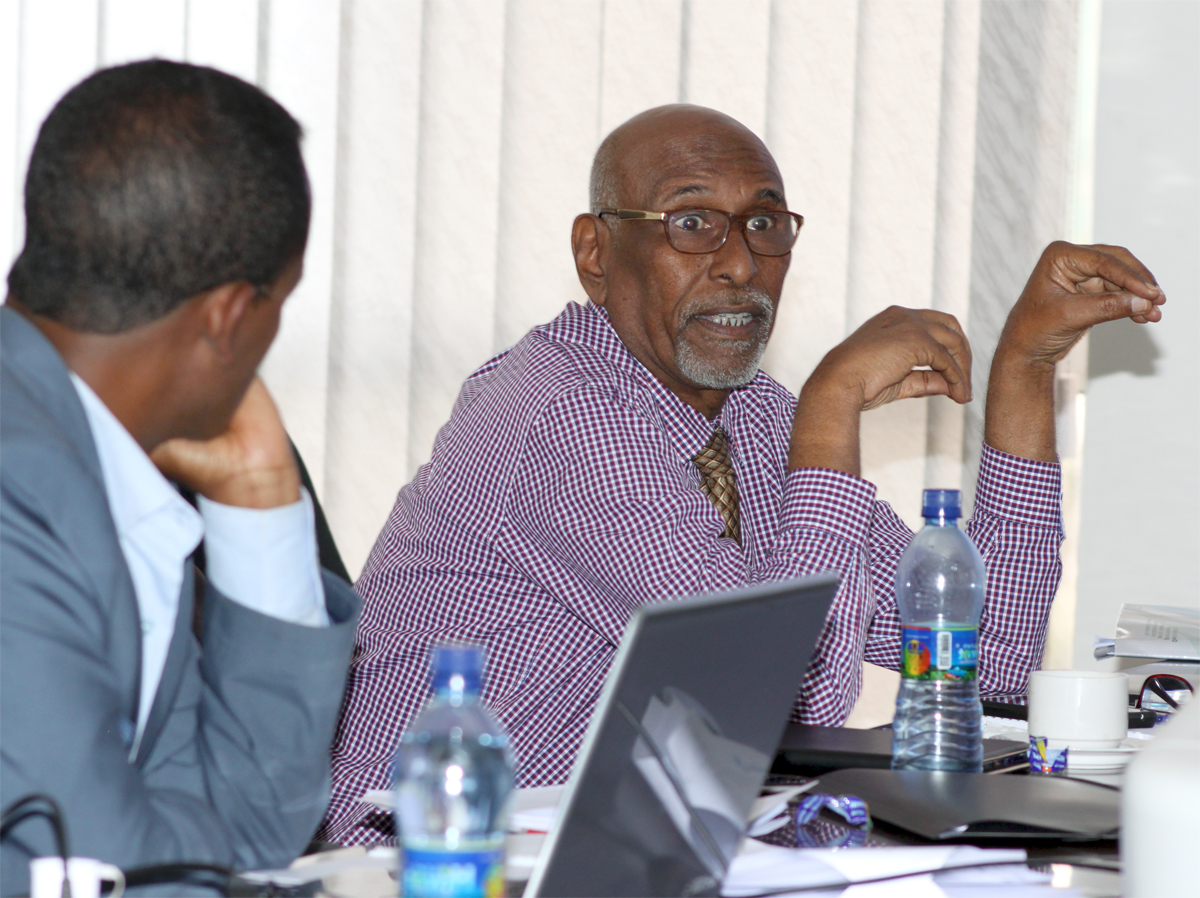
Validation workshop on macroeconomic models and warehouse receipt system
Start Date
3/5/2018
End Date
4/5/2018
Venue Location
Addis Ababa

The Horn Economic & Social Policy Institute (HESPI) held a workshop which covered issues that were among the components of a research project conducted for the Secretariat of the Inter-Governmental Authority on Development (IGAD).
The workshop discussed two commissioned studies at the venue on 3 - 4 May 2018. An assessment of status of Warehouse Receipts Systems from three countries in the IGAD region namely Ethiopia, Kenya and Uganda was presented, and deeply discussed and drawn lessons for the rest of the member countries of IGAD by the participants. A second presentation widely discussed the Macro-econometric models covering Ethiopia, Kenya, Sudan, and Uganda towards development of regional IGAD economic Models.
Warehouse Receipts System and its Context
Agriculture is an important determinant of income growth and is currently a core economic sector of the IGAD member countries. It accounts for a large share of the GDPs of the member countries, is a principle sources of foreign exchange earnings and employment (it employs about 75% of the population of the region.). Despite its importance to the well-being of the region, the sector faces a wide range of constraints including inadequate financing, weak infra-structure and poor market integration which contribute to inefficiencies and considerable losses.
Under these conditions, agricultural policies play a critical role in determining food and nutritional security. Consequently, various policies to improve agricultural financing and marketing, including Warehouse Receipts Systems have been implemented in the IGAD region to strengthen agricultural production and trade.
WRS also play pivotal role in the creation of modern commodity markets which enhance market information, competition, and quality of products in developing countries where smallholder farmers have very limited access to markets and lack facilities to store their produce that force them to sell their surplus produce during the harvest season, when farm gate prices are low.
The assessment of the WRS study included the following:
- A review of the status of the Warehouse Receipt Systems in the covered 3 IGAD of the operations, challenges and ways of addressing the limitation of the WRS in the three case studies in the IGAD region.
- Examination of the operations, challenges and ways of addressing the limitations of the WRS n the three case studies in the IGAD region.
- Identification of lessons learnt to improve agricultural commodities management, marketing and financing so as to promote agricultural production and trading.
Macro-economic Models for IGAD
Macroeconomic models are analytical tools designed to describe the operations of the economy of a country or a region. The different types of macro models serve various purposes depending on the scope and availability of data; among other issues. In this context, there are two types of models that have been developed under the commissioned work by the IGAD Secretariat for the benefit of the membership and the sub region.
The first is constructed along the traditional macro-econometric models initially inspired by the Keynesian theoretical analysis. In general, such models are more suitable for macroeconomic policy issues and forecasting purposes, and often represent testing and quantifying macro aggregates, including monetary and fiscal policies and changes there off. The second is a Computable General Equilibrium model (CGE), which is more suitable for micro-oriented analysis and in examining structural linkages or interactions.
Each model has its own advantages and disadvantages depending on the purpose, type of data available and the specific issues to be examined. Accordingly both have been constructed for IGAD and could serve the purposes of the membership and the sub region. The workshop detailed the utility, advantages and limitations of each model for the member countries, and for exploring the linkages of the economies of the countries of the region.
A crucial consideration underlined at the workshop was that the Models represented the state of the art at the delivery date; and that further improvements and additional work might well be necessary to refine the reports that were presented and debated at the Validation Workshop
